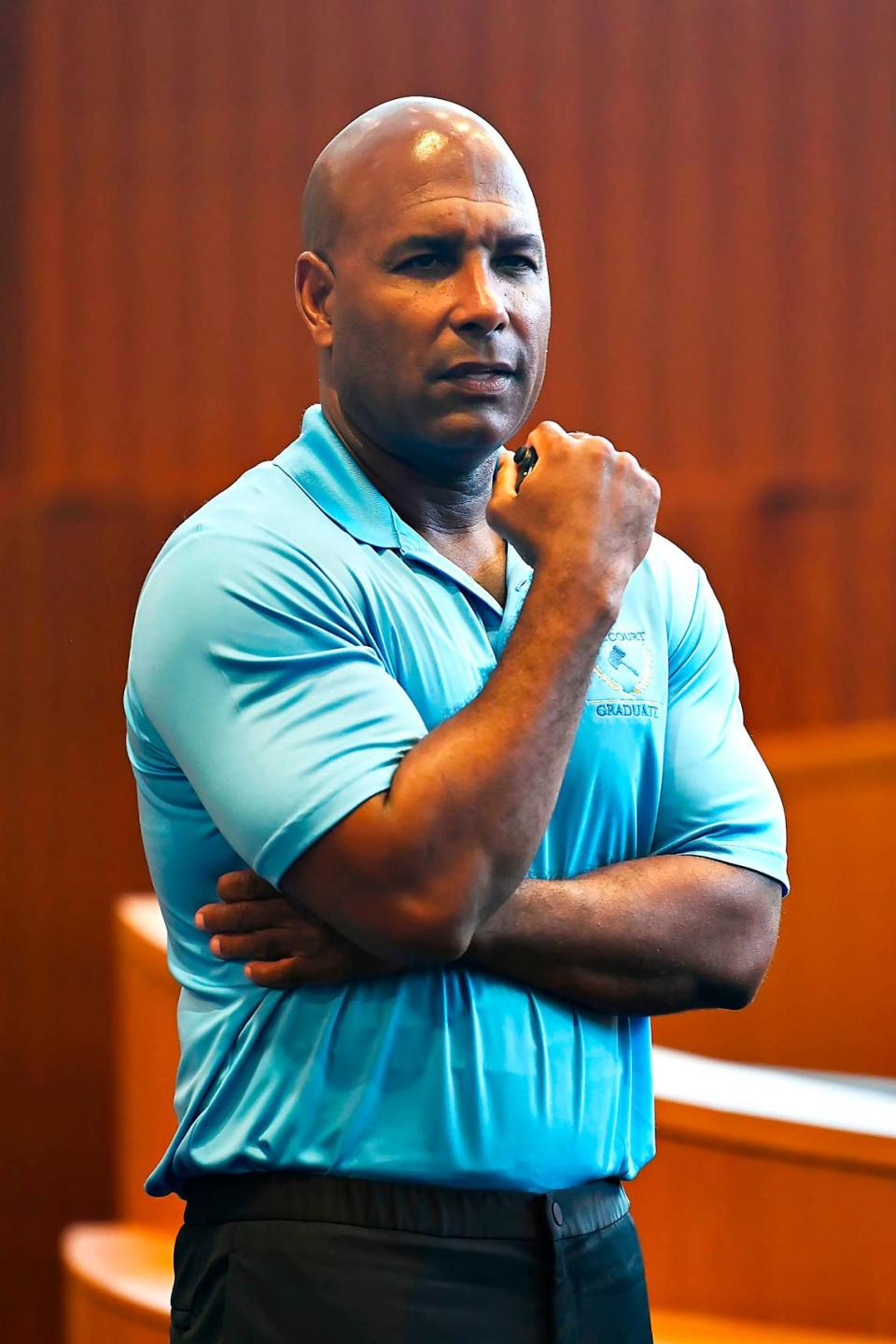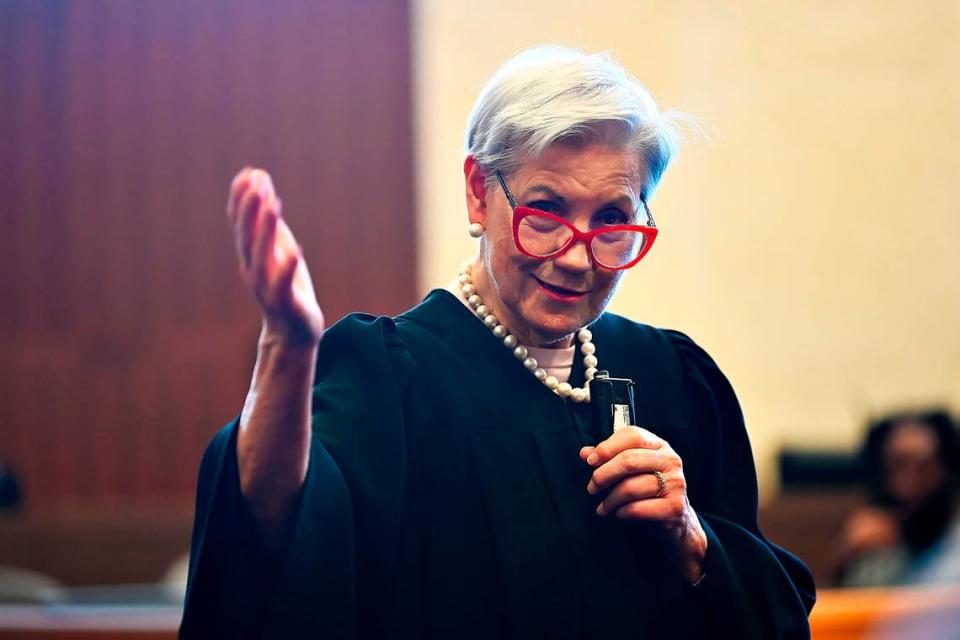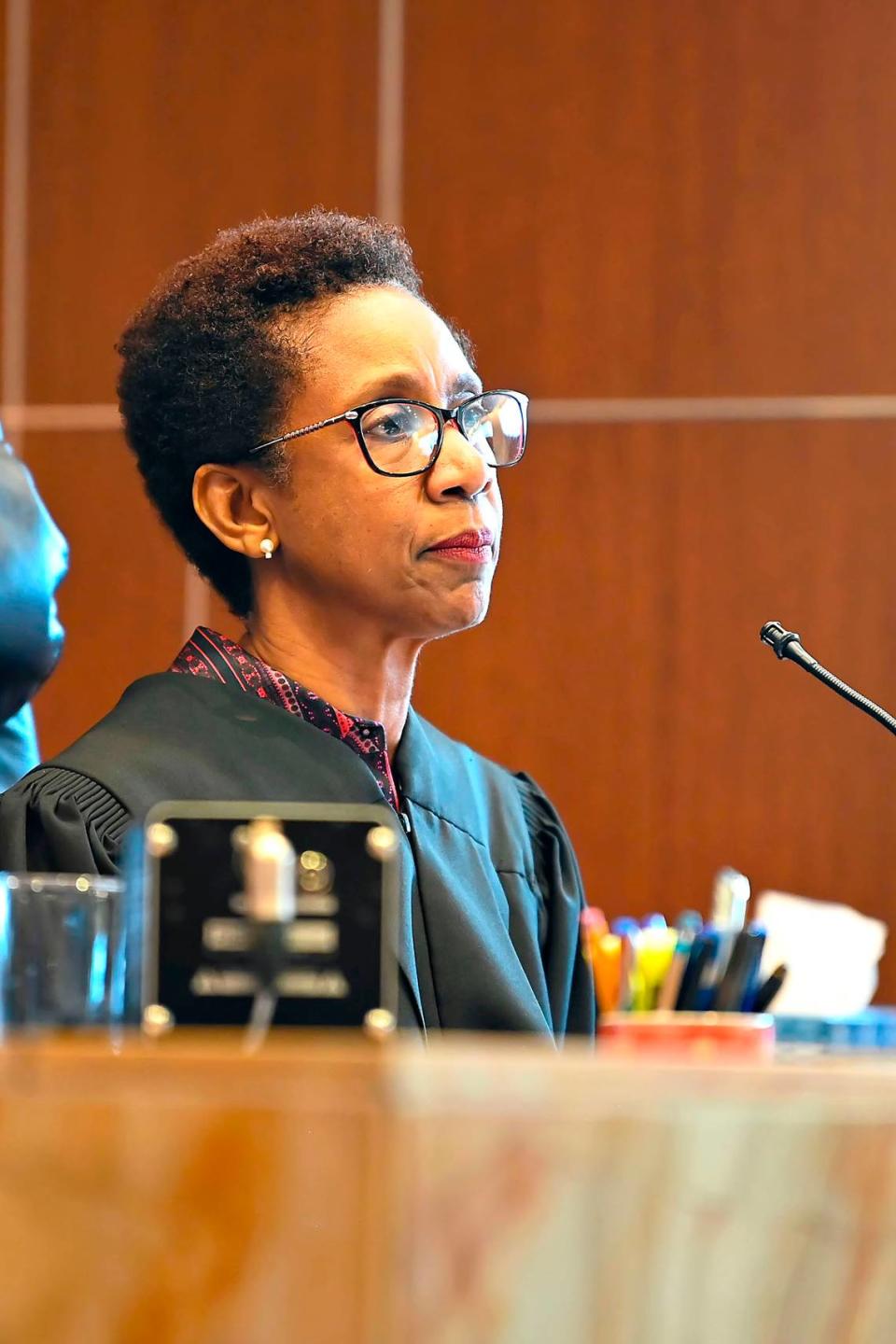He just graduated from MDC culinary school. Court program got ex-inmate on recovery road
Raised in Liberty City, Darryl Richardson attended Miami Northwestern Senior High School but dropped out.
Instead, he graduated into small-time drug dealing, leading to some minor scrapes with the law — until a few jail snitches hoping to spend less time behind bars accused him of hauling loads of cocaine from Miami to Atlanta. After two Miami federal juries deadlocked on his fate, a third jury convicted Richardson in 2006 of conspiring to distribute more than five kilos of cocaine.
U.S. District Judge Patricia Seitz imposed a 30-year prison term under then-mandatory sentencing guidelines. On Thursday, Richardson and Seitz came together again as defendant and judge, but under dramatically different circumstances. Seitz formally ended Richardson’s five-year supervised release early, following his completion of a shortened, 17-year sentence in 2021.
Richardson’s release came about through CARE Court, a court-assisted re-entry program launched eight years agoto help former prison inmates at high risk of recidivism get back on their feet. Judges, the Federal Public Defender’s Office, the U.S. Attorney’s Office and the U.S. Probation Office in South Florida are all involved.
Graduates from Miami Dade College
Richardson, who so far is among 23 graduates of the program, basked in the applause of those who helped him on his journey, which climaxed on Saturday when he received his associate’s degree from Miami Dade College’s Culinary Institute during a commencement ceremony at loanDepot park, home of the Miami Marlins.
“When I look back at it, without CARE Court, would I have been going to school?” Richardson, 53, said on Thursday in Seitz’s courtroom. “Probably, to be honest with you, no. So CARE Court did exactly what I wanted. They pushed me and they were there for me. ”

Richardson also expressed his gratitude to Miami Dade College instructors and administrators for helping him cross the finish line to obtain his diploma.
“It was a blessing,” he said in court.
Not every former prison inmate convicted of felony offenses in the Southern District of Florida can qualify for CARE Court. Those found guilty of sexual or violent offenses are barred from the program. But others, like Richardson, who may be convicted of drug trafficking, are eligible.
The screening process is done by the U.S. Probation Office, which determines who is most likely to return to a life of crime and who could benefit from CARE Court’s legal, counseling and community services.
After he was released from prison in May 2021, Richardson agreed to enter the program the following month. He also needed his judge’s approval. For Seitz, who founded the court, Richardson seemed a perfect fit as he told her he wanted to pursue his interest in cooking and attend culinary school.
“It has not been an easy two years to get that degree,” the judge told Richardson.
Judge touched by letter
During Thursday’s ceremony, Seitz read a letter that Richardson had sent to her in 2018 after he had completed the U.S. Bureau of Prison’s Residential Drug Abuse Program, which she recommended he take.
“Although unsure of what this program would hold for me, what actually occurred when I took the program was the most amazing transformation of my life,” Seitz read from his Aug. 8, 2018, letter. “The program enabled me to take a long, hard, deep look at myself and realize what l did was wrong in the past as well as what l have to do different in the future.
“Fortunately, the program supplied me with the necessary tools to change my ways of thinking and dealing with life’s many challenges.”
After she finished reading his letter, Seitz told Richardson: “I cannot tell you how much that letter meant to me. Through you, I have grown.”

Richardson, a father of three who credited his brothers and cousins with providing support for his family, said in an interview after the ceremony that it was a frightening challenge restarting his life after 17 years in prison, where “you learn to mind your own business.”
He said the CARE Court system, which requires those who enroll to attend a hearing on a biweekly basis, imposes a strict check list of responsibilities, ranging fromgetting a driver’s license and opening a bank account to more difficult goals like securing a job and staying out of trouble. Each former inmate who enrolls in the program, which lasts a year or more, must go through Moral Recognition Therapy, a 12-step type program that aims to reduce recidivism by changing one’s criminal behavior patterns.
There’s also a grading system, imposed by a judge who monitors a former inmate’s progress and assigns points for certain accomplishments. Richardson and 22 others have graduated from the program over the past eight years, but 36 other ex-inmates have failed because they didn’t want to fulfill the commitment or got arrested again and returned to prison.

On Thursday, federal Magistrate Judge Lisette Reid, who is working with U.S. District Judge Kathleen Williams in overseeing CARE Court, questioned five former inmates in the program about their challenges and achievements.
“You have come out of prison and you’re making all these efforts to transition into the community,” Reid told one former inmate, who told the judge that he had just obtained a driver’s license, work permit and bank account. “You have come so far in this process.”
“I’ve been out [of prison] eight months,” he told Reid. “I’m very grateful.”
Richardson said he can appreciate what the other former inmates are experiencing, admitting that trying to find one’s footing as a convicted felon is an everyday ordeal.
“They held me accountable and pushed me in a good way,” Richardson said.
Culinary classes
Richardson said he worked part time at Lorna’s Caribbean and American Grill in Miami Gardens while taking culinary classes at Miami Dade College, a two-year curriculum that included English, math and other core subjects, along with tutoring to help him finish.
He said as a cook he has a fondness for baking and making sauces, and his dream job would be to work as a line chef at the famed Miami Beach steakhouse, Smith & Wollensky.
“I have always liked cooking,” he said, “but Miami Dade College taught me a whole new world of cooking.”
